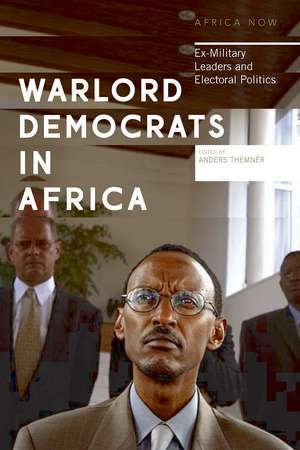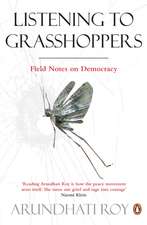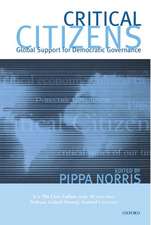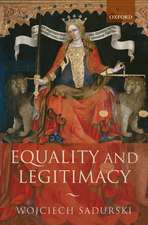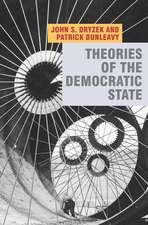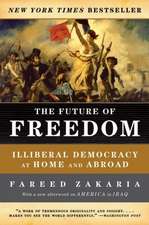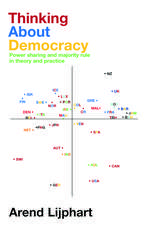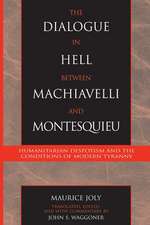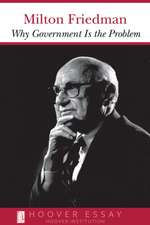Warlord Democrats in Africa: Ex-Military Leaders and Electoral Politics: Africa Now
Editat de Anders Themnéren Limba Engleză Paperback – 14 apr 2017
Democratization after war has been identified as a crucial mechanism to build peace in war-ridden societies, by resolving conflict through ballots rather than bullets. But, an often ignored by-product of the reliance on elections is that military leaders often become an integral part of the new democratic system, using resources and networks generated by the previous war to dominate the emerging political landscape.
Warlord Democrats in Africa brings together a range of contributors to answer a crucial and overlooked question: What is the effect of the inclusion of ex-military leaders into electoral politics on post-war security? The essays in this volume examine whether it is possible for warlord democrats to make a positive contribution by shepherding their wartime constituencies to support the building of peace and democracy, or whether they are more likely to use their electoral platforms to sponsor political violence and keep war-affected communities mobilized through aggressive discourses. Containing a wealth of fresh empirical detail and theoretical insight, and focusing on some of Africa's most high-profile political figures, from Paul Kagame to Rick Mahar and Afonso Dhlakama, Warlord Democrats in Africa offers a crucial analysis of democratization after conflict.
Warlord Democrats in Africa brings together a range of contributors to answer a crucial and overlooked question: What is the effect of the inclusion of ex-military leaders into electoral politics on post-war security? The essays in this volume examine whether it is possible for warlord democrats to make a positive contribution by shepherding their wartime constituencies to support the building of peace and democracy, or whether they are more likely to use their electoral platforms to sponsor political violence and keep war-affected communities mobilized through aggressive discourses. Containing a wealth of fresh empirical detail and theoretical insight, and focusing on some of Africa's most high-profile political figures, from Paul Kagame to Rick Mahar and Afonso Dhlakama, Warlord Democrats in Africa offers a crucial analysis of democratization after conflict.
| Toate formatele și edițiile | Preț | Express |
|---|---|---|
| Paperback (1) | 186.35 lei 3-5 săpt. | +47.45 lei 4-10 zile |
| ZED BOOKS – 14 apr 2017 | 186.35 lei 3-5 săpt. | +47.45 lei 4-10 zile |
| Hardback (1) | 512.37 lei 6-8 săpt. | |
| ZED BOOKS – 14 apr 2017 | 512.37 lei 6-8 săpt. |
Din seria Africa Now
-
 Preț: 179.56 lei
Preț: 179.56 lei - 8%
 Preț: 160.44 lei
Preț: 160.44 lei - 14%
 Preț: 184.59 lei
Preț: 184.59 lei - 14%
 Preț: 179.91 lei
Preț: 179.91 lei - 14%
 Preț: 166.71 lei
Preț: 166.71 lei - 8%
 Preț: 153.08 lei
Preț: 153.08 lei - 7%
 Preț: 147.88 lei
Preț: 147.88 lei - 7%
 Preț: 154.84 lei
Preț: 154.84 lei - 22%
 Preț: 149.46 lei
Preț: 149.46 lei - 14%
 Preț: 185.02 lei
Preț: 185.02 lei -
 Preț: 165.91 lei
Preț: 165.91 lei - 14%
 Preț: 177.32 lei
Preț: 177.32 lei - 14%
 Preț: 185.02 lei
Preț: 185.02 lei - 14%
 Preț: 185.47 lei
Preț: 185.47 lei -
 Preț: 215.61 lei
Preț: 215.61 lei - 14%
 Preț: 511.14 lei
Preț: 511.14 lei - 14%
 Preț: 509.28 lei
Preț: 509.28 lei - 19%
 Preț: 438.24 lei
Preț: 438.24 lei - 14%
 Preț: 183.70 lei
Preț: 183.70 lei
Preț: 186.35 lei
Preț vechi: 215.87 lei
-14% Nou
Puncte Express: 280
Preț estimativ în valută:
35.67€ • 38.76$ • 29.98£
35.67€ • 38.76$ • 29.98£
Carte disponibilă
Livrare economică 31 martie-14 aprilie
Livrare express 14-20 martie pentru 57.44 lei
Preluare comenzi: 021 569.72.76
Specificații
ISBN-13: 9781783602483
ISBN-10: 1783602481
Pagini: 272
Dimensiuni: 152 x 229 x 23 mm
Greutate: 0.41 kg
Editura: ZED BOOKS
Colecția Zed Books
Seria Africa Now
Locul publicării:London, United Kingdom
ISBN-10: 1783602481
Pagini: 272
Dimensiuni: 152 x 229 x 23 mm
Greutate: 0.41 kg
Editura: ZED BOOKS
Colecția Zed Books
Seria Africa Now
Locul publicării:London, United Kingdom
Notă biografică
Anders Themnér is a senior researcher at the Nordic Africa Institute and assistant professor of peace and conflict studies at Uppsala University, Sweden.
Recenzii
“A much needed volume taking us beyond the simple solutions so forcefully propagated by the international community in the aftermath of civil wars. Themnér and his contributors take us deep into the political complexities of the African continent.”
“This collection of excellent articles provides evidence for the wide scope of opportunities and constraints facing former warlords in peacetime. The book implores us to avoid the simplistic labelling of these ambitious political entrepreneurs as men of either war or peace.”
“A valuable corrective to broad-brush takes on post-conflict governance on the continent. Through detailed case studies it accomplishes that most rare feat: thinking African politics on its own terms.”
“This wonderful volume brings together a superb team of specialists to investigate the contradictory concept of ‘warlord democrats.’ This book will be of great value to those seeking to understand the complex transformations that characterize ending violence and building post-war political orders."
“A major work. This book tells us exactly how and why wartime leaders play significant roles in post-war politics. Extremely insightful and clear, it is likely to spur a new research programme in the study of post-conflict politics and state-building. It should be widely read.”
“An excellent collection of essays. The political economy analysis it offers should be of particular interest to those—quite especially the UN and those charged with running its peace operations—trying to build peace and secure durable political settlements to long-running conflicts.”
“A must read for any scholar, researcher, or individual interested in African politics and how ‘Big Men’ and patronage contribute to the illusion of democracy seen in most patrimonial African states.”
“Regular multiparty elections have become the norm in (African) countries, leaving former guerrilla leaders, military officers, and other assorted ‘big men’ with little choice but to put away their guns and begin second careers as politicians, asking citizens for votes. This collection of essays assesses how this phenomenon has shaped African democracy.”
“Contains fascinating analyses of former warlords who have often transformed their insurgencies into political parties.”
“I would recommend this book to scholars and general readers interested in studying the dynamics of the state, institutions, and political leadership in post-Cold War Africa. Those with interest in evaluating Africa’s so-called “Second Wave of Democratization” will also find this book captivating.”
